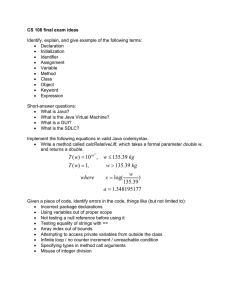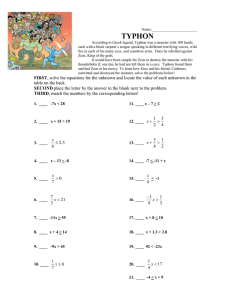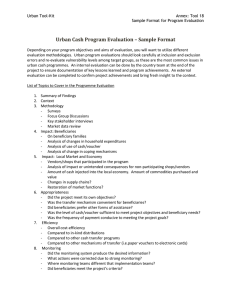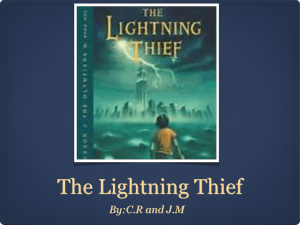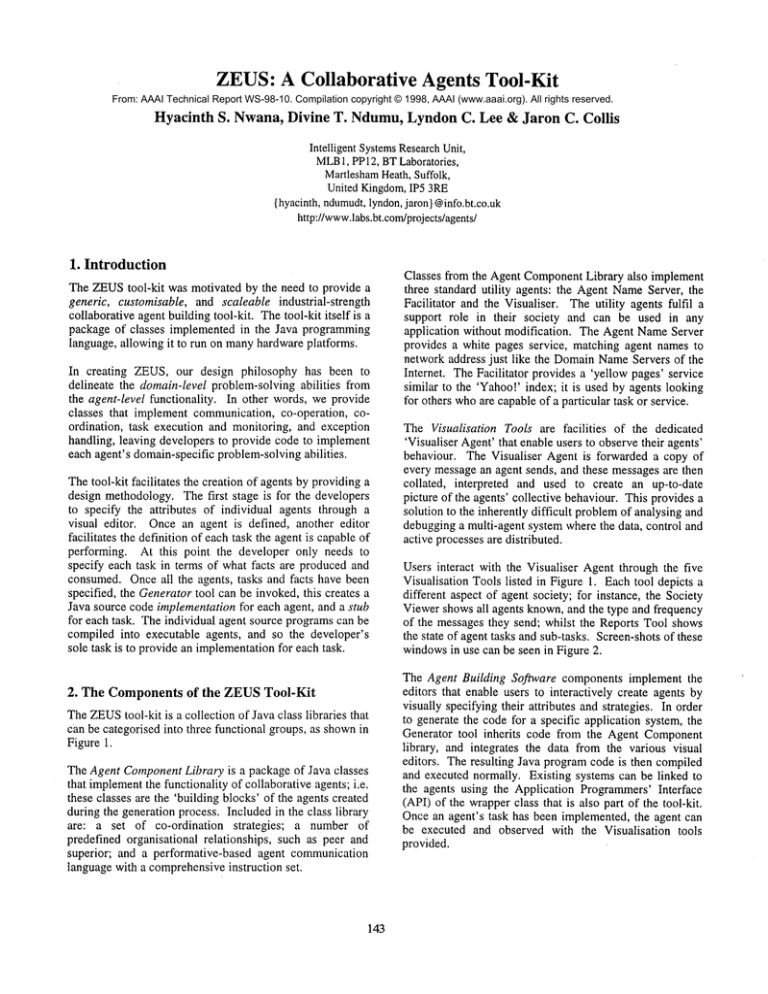
ZEUS:A Collaborative
Agents Tool-Kit
From: AAAI Technical Report WS-98-10. Compilation copyright © 1998, AAAI (www.aaai.org). All rights reserved.
Hyacinth S. Nwana,Divine T. Ndumu,LyndonC. Lee & Jaron C. Collis
Intelligent SystemsResearchUnit,
MLB
1, PP 12, BTLaboratories,
Martlesham
Heath, Suffolk,
United Kingdom,IP5 3RE
{hyacinth,ndumudt,
lyndon,jaron} @info.bt.co.uk
http://www.labs.bt.com/projects/agents/
1. Introduction
The ZEUStool-kit was motivated by the need to provide a
generic, customisable, and scaleable industrial-strength
collaborative agent building tool-kit. Thetool-kit itself is a
package of classes implemented in the Java programming
language, allowing it to run on manyhardwareplatforms.
In creating ZEUS, our design philosophy has been to
delineate the domain-level problem-solving abilities from
the agent-level functionality. In other words, we provide
classes that implement communication, co-operation, coordination, task execution and monitoring, and exception
handling, leaving developers to provide code to implement
each agent’s domain-specific problem-solvingabilities.
The tool-kit facilitates the creation of agents by providinga
design methodology.The first stage is for the developers
to specify the attributes of individual agents through a
visual editor. Once an agent is defined, another editor
facilitates the definition of each task the agent is capable of
performing. At this point the developer only needs to
specify each task in terms of what facts are produced and
consumed.Onceall the agents, tasks and facts have been
specified, the Generatortool can be invoked, this creates a
Java source code implementation for each agent, and a stub
for each task. The individual agent source programscan be
compiled into executable agents, and so the developer’s
sole task is to provide an implementationfor each task.
2. The Components of the ZEUSTool-Kit
TheZEUS
tool-kit is a collection of Java class libraries that
can be categorised into three functional groups, as shownin
Figure 1.
The Agent ComponentLibrary is a package of Java classes
that implementthe functionality of collaborative agents; i.e.
these classes are the ’building blocks’ of the agents created
during the generation process. Included in the class library
are: a set of co-ordination strategies;
a number of
predefined organisational relationships, such as peer and
superior; and a performative-based agent communication
languagewith a comprehensiveinstruction set.
143
Classes from the Agent ComponentLibrary also implement
three standard utility agents: the Agent NameServer, the
Facilitator and the Visualiser. The utility agents fulfil a
support role in their society and can be used in any
application without modification. The Agent NameServer
provides a white pages service, matching agent names to
network address just like the DomainNameServers of the
Internet. The Facilitator provides a ’yellow pages’ service
similar to the ’Yahoo!’index; it is used by agents looking
for others whoare capable of a particular task or service.
The Visualisation Tools are facilities of the dedicated
’Visualiser Agent’that enable users to observetheir agents’
behaviour. The Visualiser Agent is forwarded a copy of
every messagean agent sends, and these messagesare then
collated, interpreted and used to create an up-to-date
picture of the agents’ collective behaviour. This provides a
solution to the inherently difficult problemof analysing and
debugginga multi-agent system where the data, control and
active processes are distributed.
Users interact with the Visualiser Agent through the five
Visualisation Tools listed in Figure 1. Eachtool depicts a
different aspect of agent society; for instance, the Society
Viewershows all agents known,and the type and frequency
of the messages they send; whilst the Reports Tool shows
the state of agent tasks and sub-tasks. Screen-shotsof these
windowsin use can be seen in Figure 2.
The Agent Building Software components implement the
editors that enable users to interactively create agents by
visually specifying their attributes and strategies. In order
to generate the code for a specific application system, the
Generator tool inherits code from the Agent Component
library, and integrates the data from the various visual
editors. The resulting Java programcode is then compiled
and executed normally. Existing systems can be linked to
the agents using the Application Programmers’Interface
(API)of the wrapperclass that is also part of the tool-kit.
Oncean agent’s task has been implemented,the agent can
be executed and observed with the Visualisation tools
provided.
Agent
Component
Library
Agent Building
Software
Visualiaation
Tools
i
/
Planning
&
/ Schduli.g
\
O°mmun’°°"°n
/
Reports
Social
\ Interaction
\
~
\
~g
~
~
User
~t~ Interface/
entConcepts
/
]
/
’
iF
Tool
/
/
I
~
StatisticsT°°lt
"? i ~" VisualAlgent~
[ I~:~: ">~’J
Creator
Auto Code
Generator
/
\
/
~ge~iewer
/
System
’~-~Co
n~o//
"~-,-...
API/
/~._~....
i
Figure 1 - The Components of the ZEUSAgent Building Tool-Kit. The Agent Component Library provides the
building blocks for collaborative agents. To implement communication, a TCP/IP messaging system is provided,
together with KQML
and FIPA ACLcommunication languages. To implement social interaction we have provided a
library of negotiation strategies, such as contract-net, master-slave, Dutchauction, multiple agent task priority, etc. The
AgentConceptsare data structures representing key concepts like facts, attributes, tasks, constraints and acquaintances.
Figure 2 - The Society Viewer (left) and Reports Tool (right) windows. The Society viewer shows the
agents currently active, their relationships and the messagesthey send; note the tool-bar at the top of the
screen that can be used to save and replay agent sessions. The Reports Tool displays the progress of
individual agent tasks, with the pop-up windowproviding extra information whennecessary.
Further Reading
Nwana,H.S.; Ndumu,D.T.; Lee, L.C. 1998. ZEUS:An AdvancedTool-Kit for Engineering Distributed MultiAgent Systems. In Proceedings of PAAM
98, p377-391, March 1998.
Nwana, H.S.; Ndumu,D.T.; Lee, L.C.; Collis J.C. 1998. ZEUS:A Tool-Kit for Engineering Distributed Agent
Systems.International Journal of Applied Artificial Intelligence. Vol.7/8. To Appear.
These publications and others relating to our workon the ZEUS
tool-kit are available online from:
http://www.labs.bt.com/projects/agents/publish/
144



